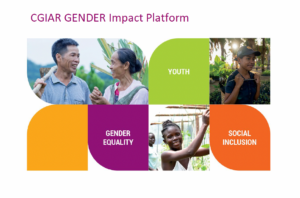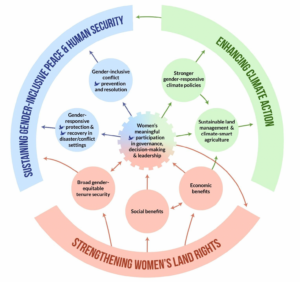This article asks: How do women negotiate power relations and their expression in gender norms to secure benefits from improved maize varieties (IMVs), and more broadly, to expand their decision-making space? The authors draw on data from four Nigerian case studies, two from the North and two from the Southwest. The findings are analyzed through a conceptual framework utilizing five different concepts of power. Findings are remarkably similar across all sites. Women are constrained by powerful gender norms which privilege men’s agency and which frown upon women’s empowerment. There is limited evidence for change in some contexts through expansion in women’s agency. The implications for maize research and development is that an improved understanding of the complex relational nature of empowerment is essential when introducing new agricultural technologies.
Authors: Cathy Rozel Farnworth , Lone Badstue , George J. Williams , Amare Tegbaru & Hyeladi Ibrahim M. Gaya
To cite this article: Cathy Rozel Farnworth , Lone Badstue , George J. Williams , Amare Tegbaru & Hyeladi Ibrahim M. Gaya (2020): Unequal partners: associations between power, agency and benefits among women and men maize farmers in Nigeria, Gender, Technology and Development, DOI: 10.1080/09718524.2020.1794607




